Best Freight Forwarding Software 2025
Author:
Divya Murugan
Published On:
Apr 22, 2025
Updated On:
Nov 13, 2025
1 min read
Behind every successful shipment is a freight forwarder juggling a thousand moving parts. From coordinating carriers to navigating customs, it’s a fast-paced, high-pressure job, and the stakes are only getting higher in 2025. That’s why the right freight forwarding software isn’t just helpful, it’s essential. It empowers teams to simplify workflows, stay ahead of delays, and keep customers in the loop every step of the way.That’s where freight forwarding software comes in-bringing clarity, control, and consistency to the chaos. But what exactly is this software, and how does it help?
What is Freight Forwarding Software?
Freight forwarding software is a comprehensive solution that combines all the essential tools to manage your operations. It offers real-time cargo tracking, allowing you to stay informed and respond proactively. From booking to final delivery, the software oversees the entire shipping process, helping you maintain efficiency and ensure customer satisfaction at every step. With intelligent document management features, it eliminates the clutter of paperwork—making it easier to access, share, and store essential files seamlessly.
It integrates with multiple carriers to manage all your shipping partners from one platform. It also ensures you comply with customs regulations and are not delayed or penalized. By automating these processes, the software helps to reduce errors, thereby improving overall operational effectiveness and customer satisfaction.
Unifying all freight forwarding operations—from booking to delivery—into one system creates a smoother, more connected workflow that saves time and stress.
Now that we understand freight forwarding software and its capabilities, let’s explore the features that will truly make a platform stand out in 2025.
Key Features to Look for in Freight Forwarding Software 2025

Freight forwarders need innovative tools to manage end-to-end freight forwarding operations efficiently.
Route Optimization
End-to-End Visibility & Live Tracking
Integrated Customs & Compliance Tools
Multimodal (Sea, Air, Rail, Road)
Customer Portal & Self-Service Tools
Automated Document Generation (BL, Invoice, etc.)
Analytics & Performance Dashboards
Third-Party Integrations (TMS, WMS, CRM, ERP)
Modular Approach in Pricing & Feature Selection
Training Resources for User Support & Onboarding
Flexible Platform for Customization & Integration
With these key features in mind, it’s time to look at the best solutions the market has to offer. Here’s our curated list of top freight forwarding software for 2025.
Top 10 Freight Forwarding Software 2025
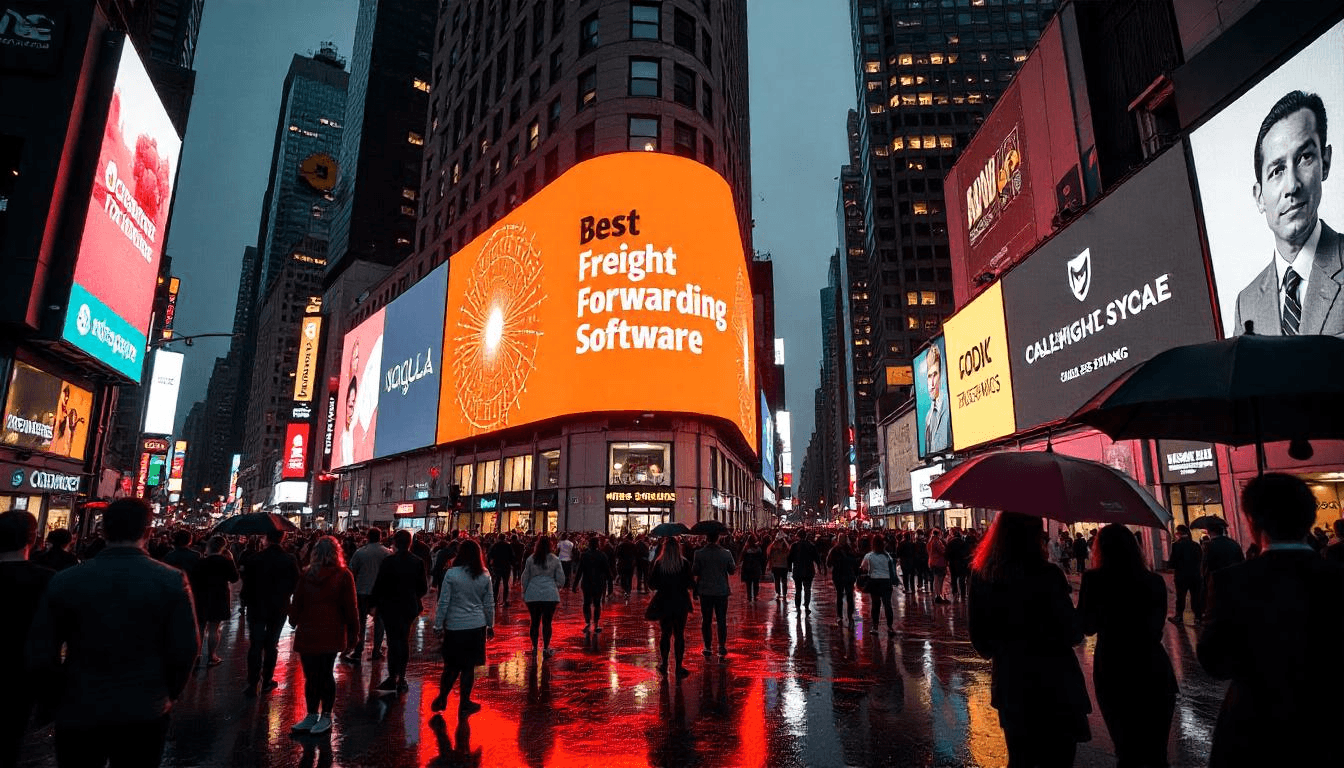
For today’s freight forwarder, efficiency, visibility, and speed are critical. In a complex global supply chain, the right freight forwarding software can be the difference between growth and stagnation.
To help you navigate the best solutions available, we’ve rounded up the top 10 freight forwarding software that are transforming the way logistics companies operate. Each offers unique capabilities tailored to meet the evolving demands of modern freight forwarding.
1. CargoEZ
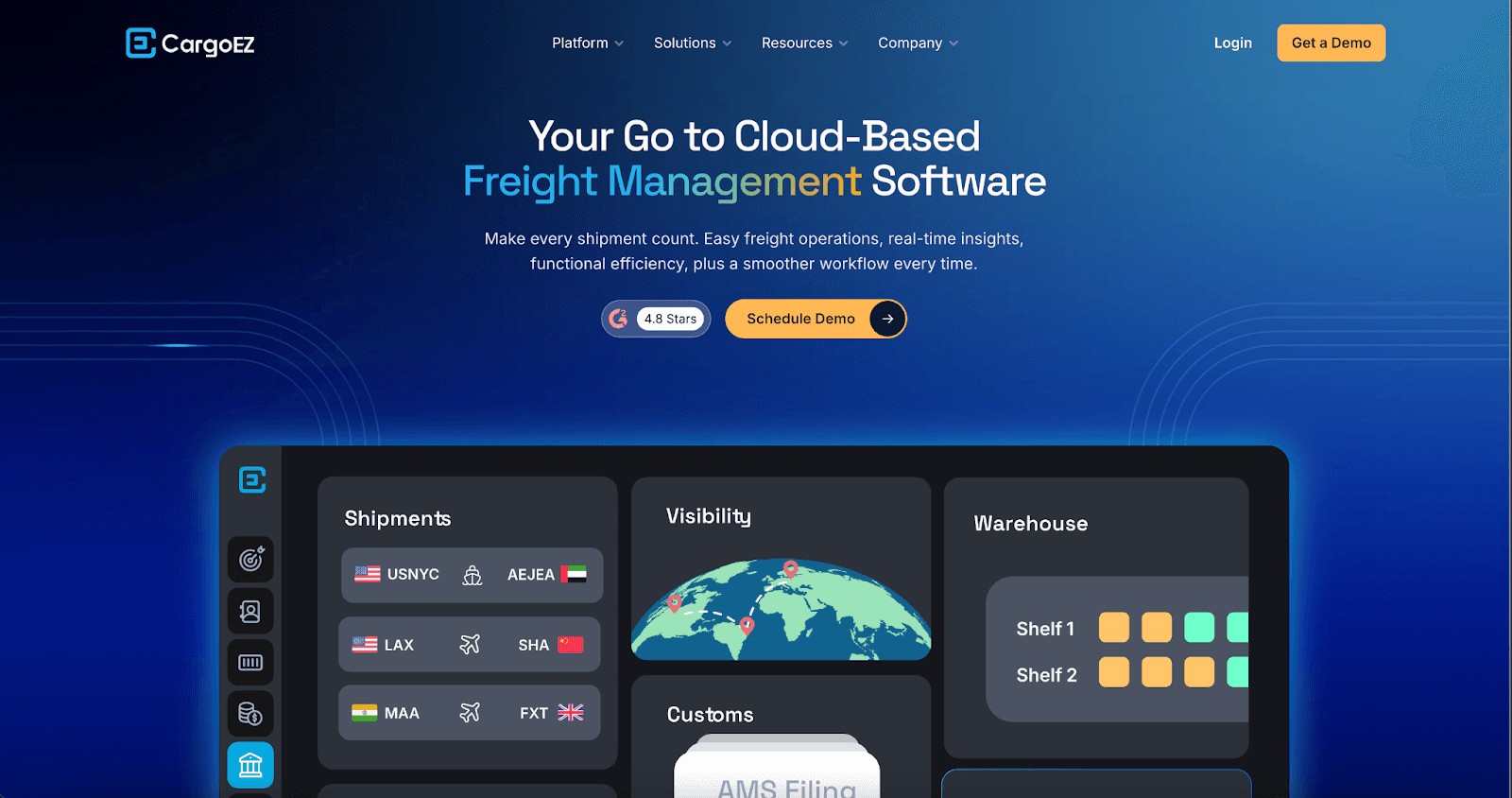
CargoEZ is a cloud-based freight forwarding software that integrates all logistics functions into one platform. It features real-time data, intuitive design, and powerful reporting tools, designed to optimize business operations and accelerate growth for logistics businesses.
Key Features:
Freight Management: Shipment creation, booking, invoicing, and real-time tracking.
Logistics CRM: Customer data, contacts, leads management, and sales outreach.
Warehouse Management: Inbound and outbound operations, multi-warehouse management, and inventory visibility.
Rate Management System: Centralized rate storage, automated quotations, and comparison tools.
Logistics Accounting: Receivables and payables management, comprehensive reports, and multi-currency invoicing.
Customer Portal: Rate search, tariff filing, and real-time shipment tracking.
Mobile App: Access shipments, track orders, manage tasks, and receive updates on the go.
2. GoFreight
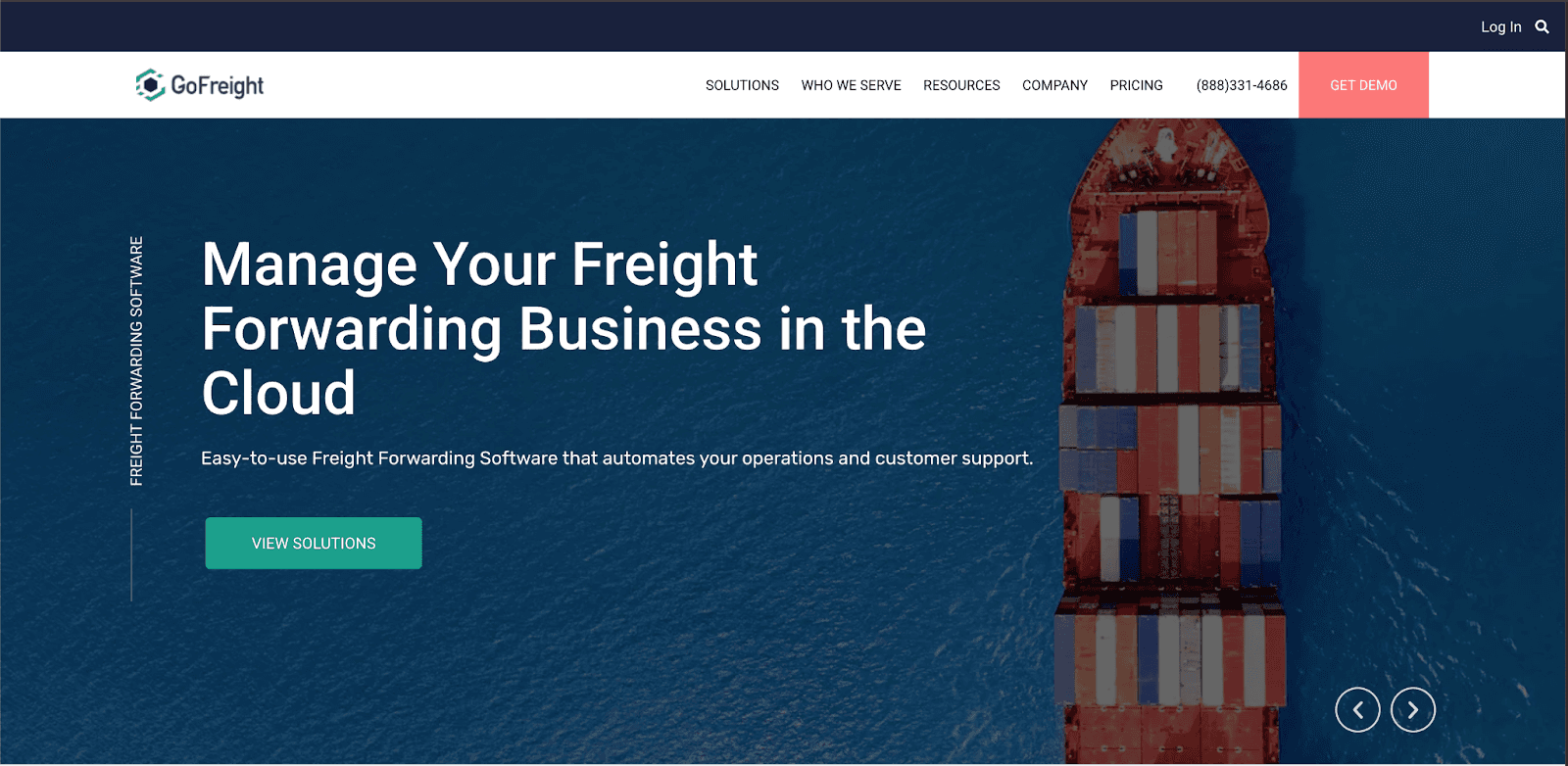
GoFreight is an all-in-one freight forwarding software streamlining operations with a user-friendly tracking system. It offers comprehensive freight forwarding solutions that empower logistics companies to enhance service delivery and improve operational efficiency.
Key Features:
Shipment Management: Import and export shipments, reports, bills of lading, container ETAs, and invoices.
Customer Portal: Client visibility into their shipments, automated status updates, and custom reports.
Security Filing: Directly filing customs documents within the platform saves time and reduces errors.
Tracking: Integrates with ocean carriers, terminals, and rail EDI for automatic container status updates.
Ocean Freight Management: Manage maritime shipments, track container movements, and generate necessary documentation.
3. CargoWise
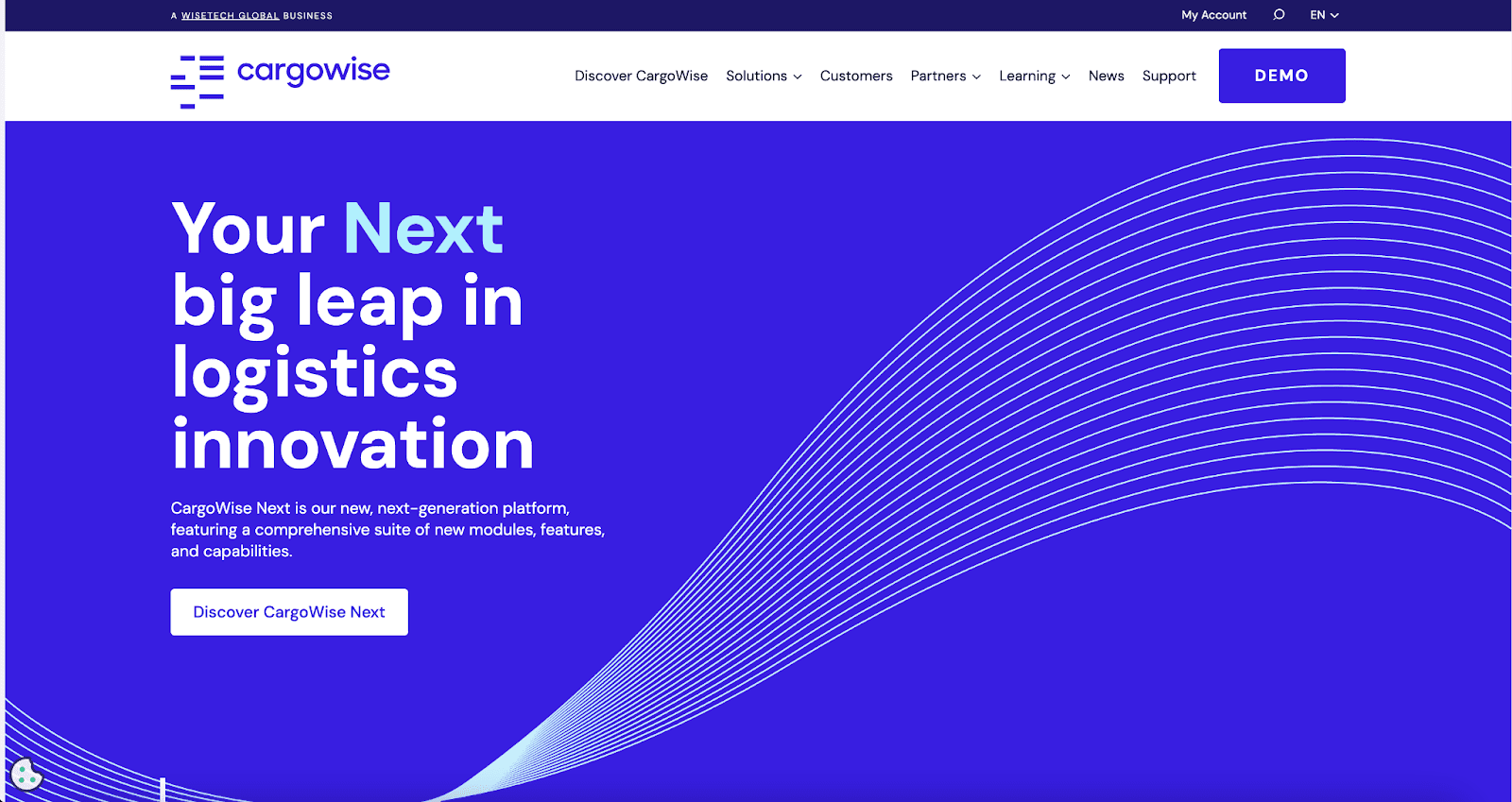
CargoWise is a logistics platform developed by WiseTech Global to simplify complex freight forwarding operations.
Key Features:
Integrated Global Platform: Manage multiple users, offices, countries, currencies, and languages on one database.
Customs and Compliance Management: Border compliance and international regulations.
Advanced Reporting Tools: Quick-view dashboards, search filters, and customizable grids for workflow management.
Documentation Generation: Air waybills and other essential documentation to enhance efficiency and compliance.
Supply Chain Management: Enhance efficiency and visibility within logistics operations through integration and automation.
4. Magaya Supply Chain
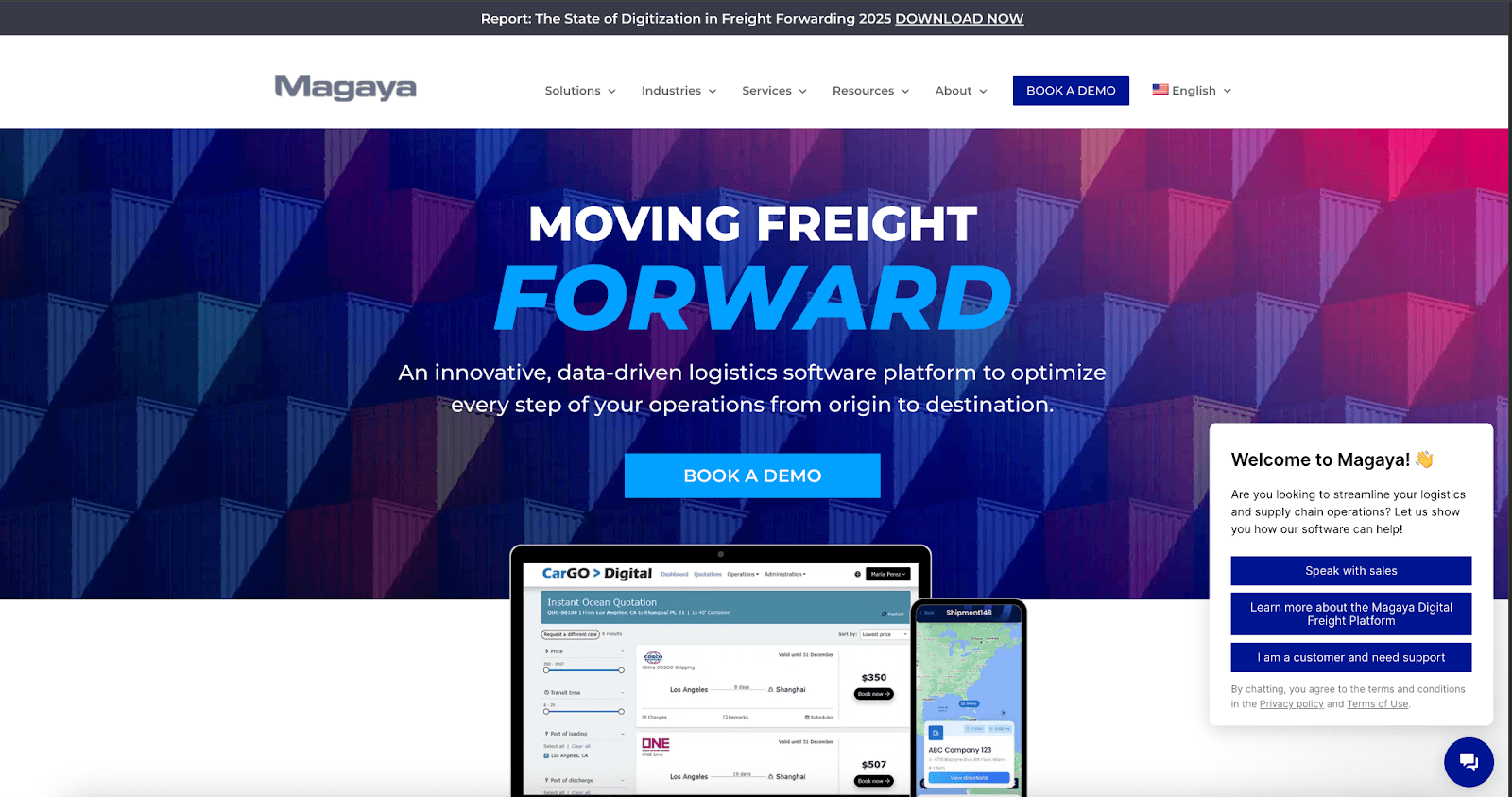
Magaya Supply Chain offers logistics tools, including freight forwarding, warehousing, and customs compliance. Modern software solutions like Magaya Supply Chain are essential for any freight forwarder looking to optimize logistics operations, meet customer demands, and maintain a competitive advantage.
Key Features:
Automated Customs Compliance: Trade regulations with minimal manual intervention.
Integrated Accounting and Billing: Financial management with operational processes.
Mobile Accessibility: Warehouse management app.
Transportation Management System Integration: Seamless connectivity with the transportation management system
5. Linbis
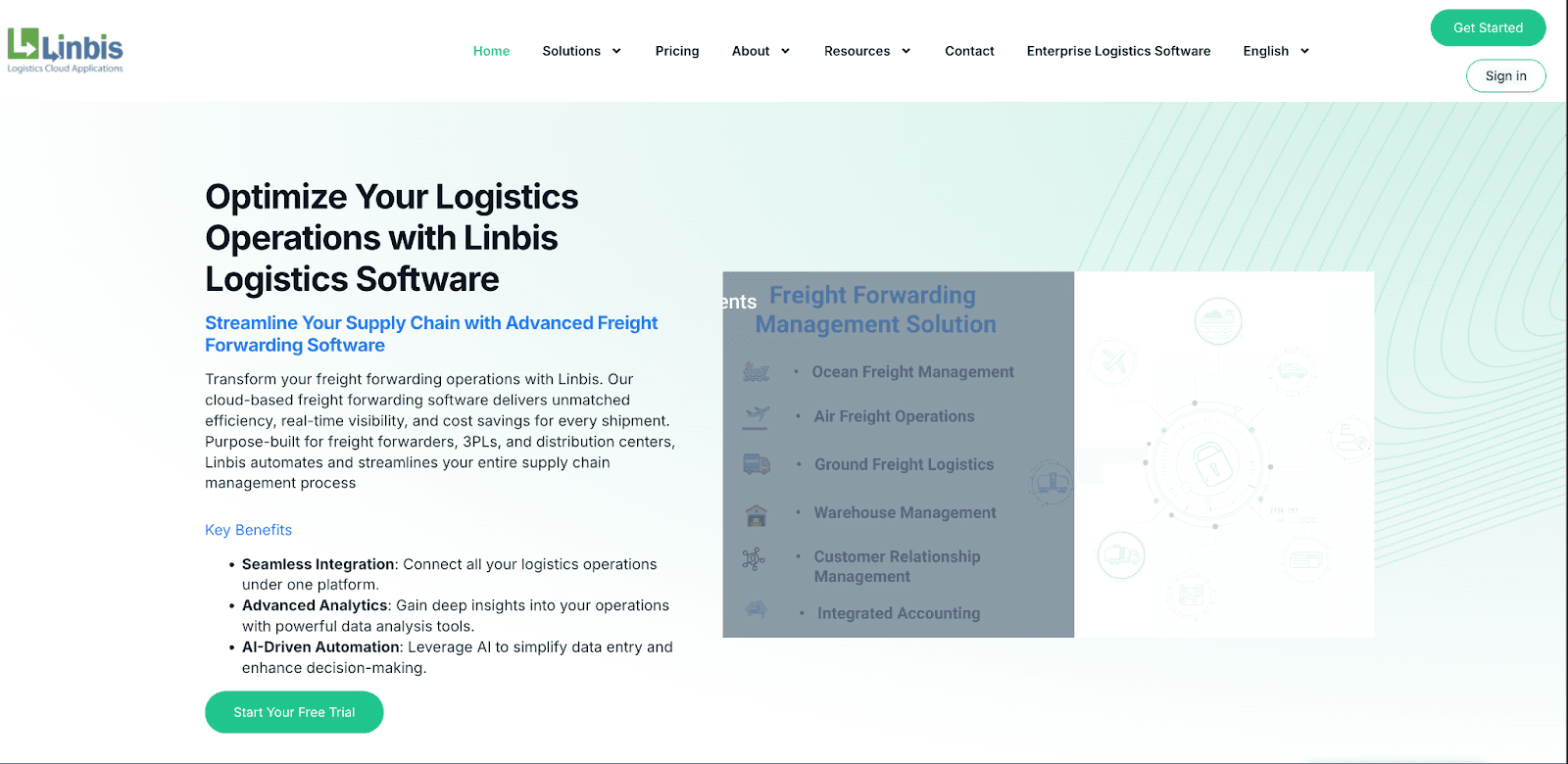
Linbis is cloud-based logistics software for small—to medium-sized freight forwarders. It focuses on user-friendliness and functionality and is designed to manage complex supply chains efficiently, providing real-time visibility and centralized management.
Key Features:
Automated Quoting and Booking: Quote and book shipments.
Real-Time Tracking: Live shipment status.
Integration Capabilities: Integrates with accounting software like QuickBooks.
Each of these platforms offers something unique, but how do they compare side by side?
6. Fresa Gold
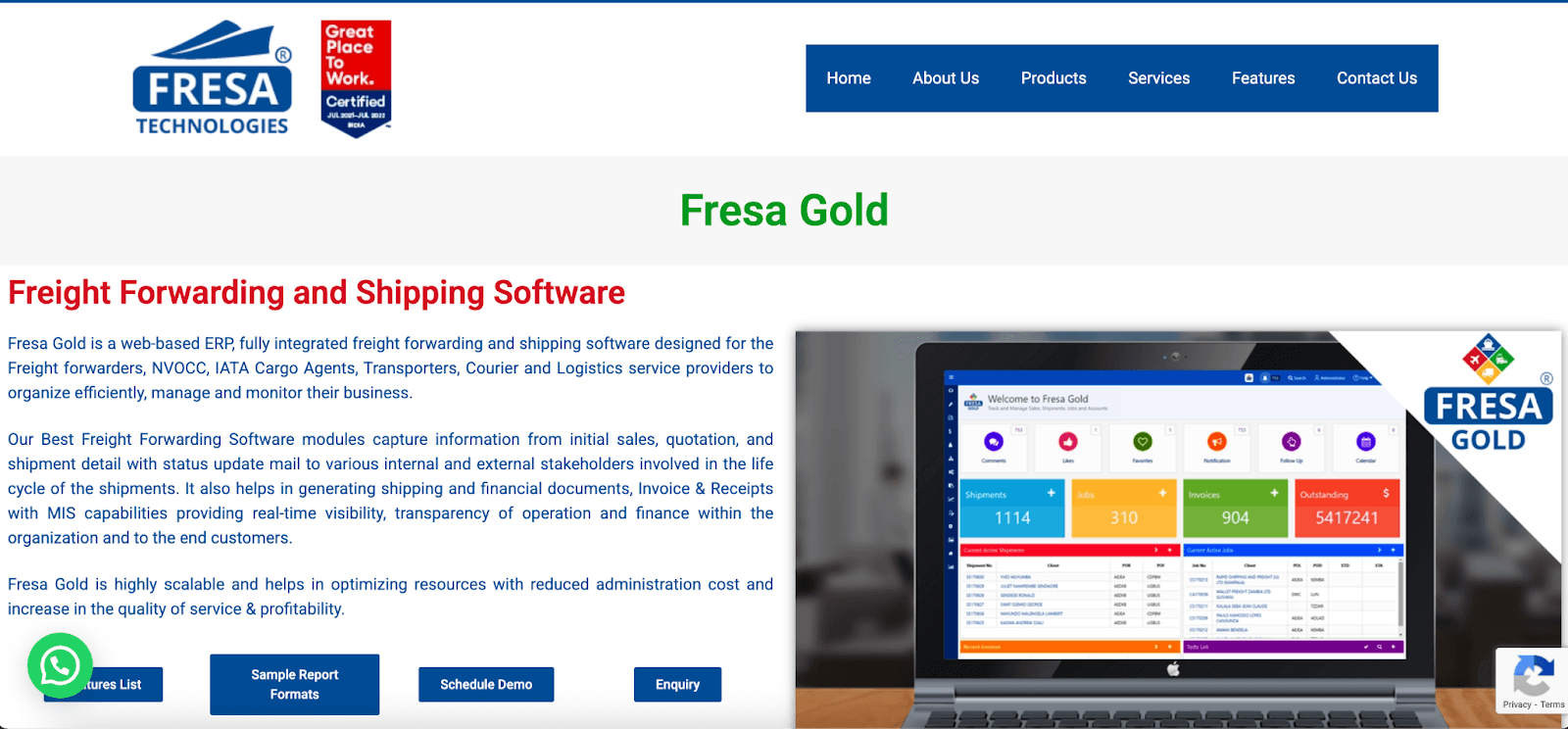
Fresa Gold is a comprehensive cloud-based freight forwarding software designed to automate logistics workflows. It supports end-to-end freight operations with a focus on usability and compliance.
Key Features:
End-to-End Freight Management: Booking, shipments, invoicing, and operations in one place.
Customs & Compliance: Integrated compliance tools for various regions.
Finance & Accounting: Built-in accounting tools with reporting.
Multi-Branch & Multi-Currency Support: Operates across branches with financial consistency.
Mobile-Friendly: Access shipments and data on the go.
7. Gama Suite
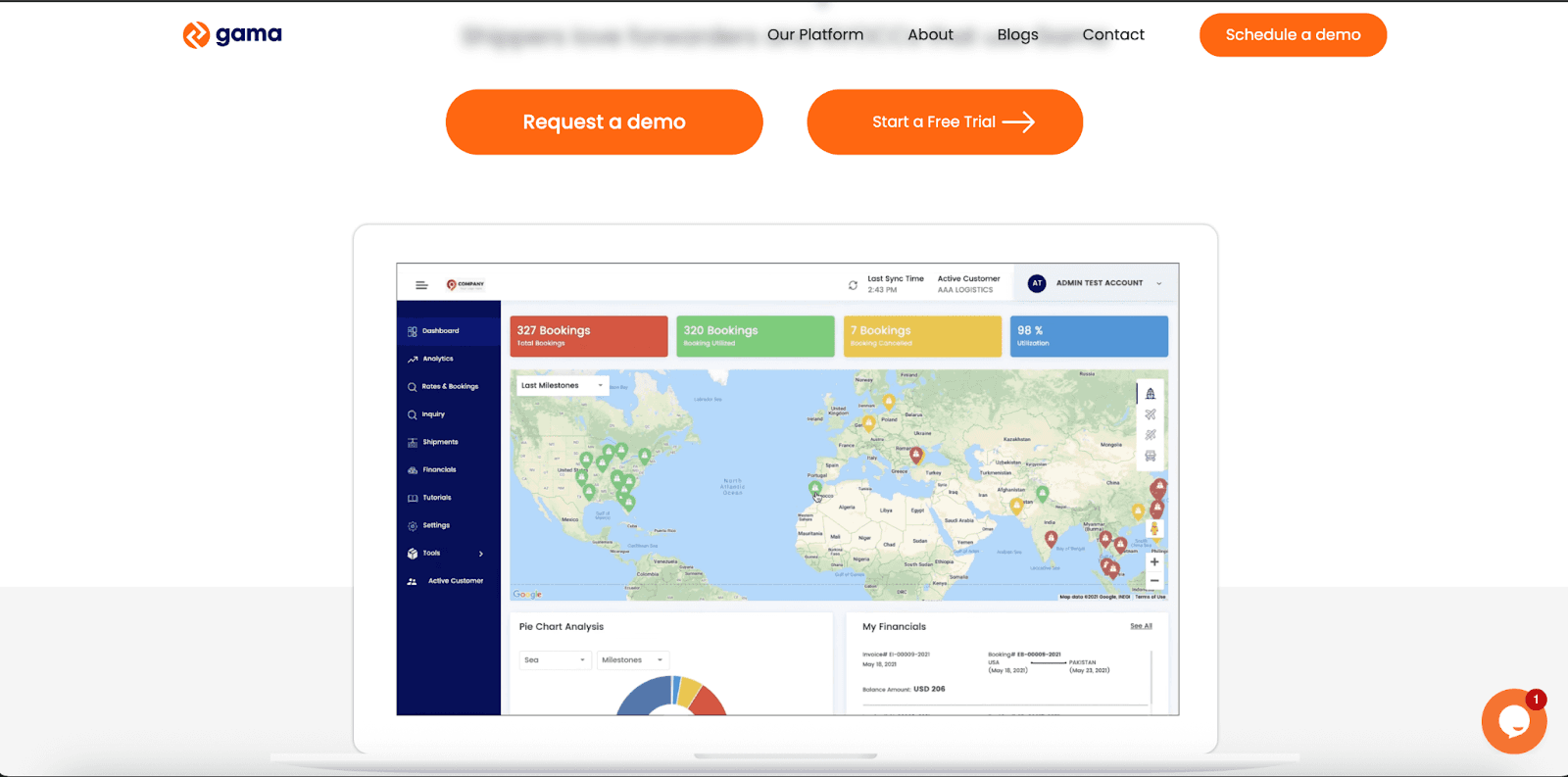
Gama Suite is an integrated logistics and freight forwarding solution offering automation and scalability for forwarders of different sizes.
Key Features:
Operations Automation: Automates freight forwarding workflows to reduce errors.
CRM & Sales Tools: Customer and lead management for better visibility.
Billing & Accounting: Integrated finance module for accuracy and transparency.
Analytics: Business intelligence and reporting dashboards.
API Integrations: Connect with carriers, ERPs, and third-party systems.
8. Logistaas
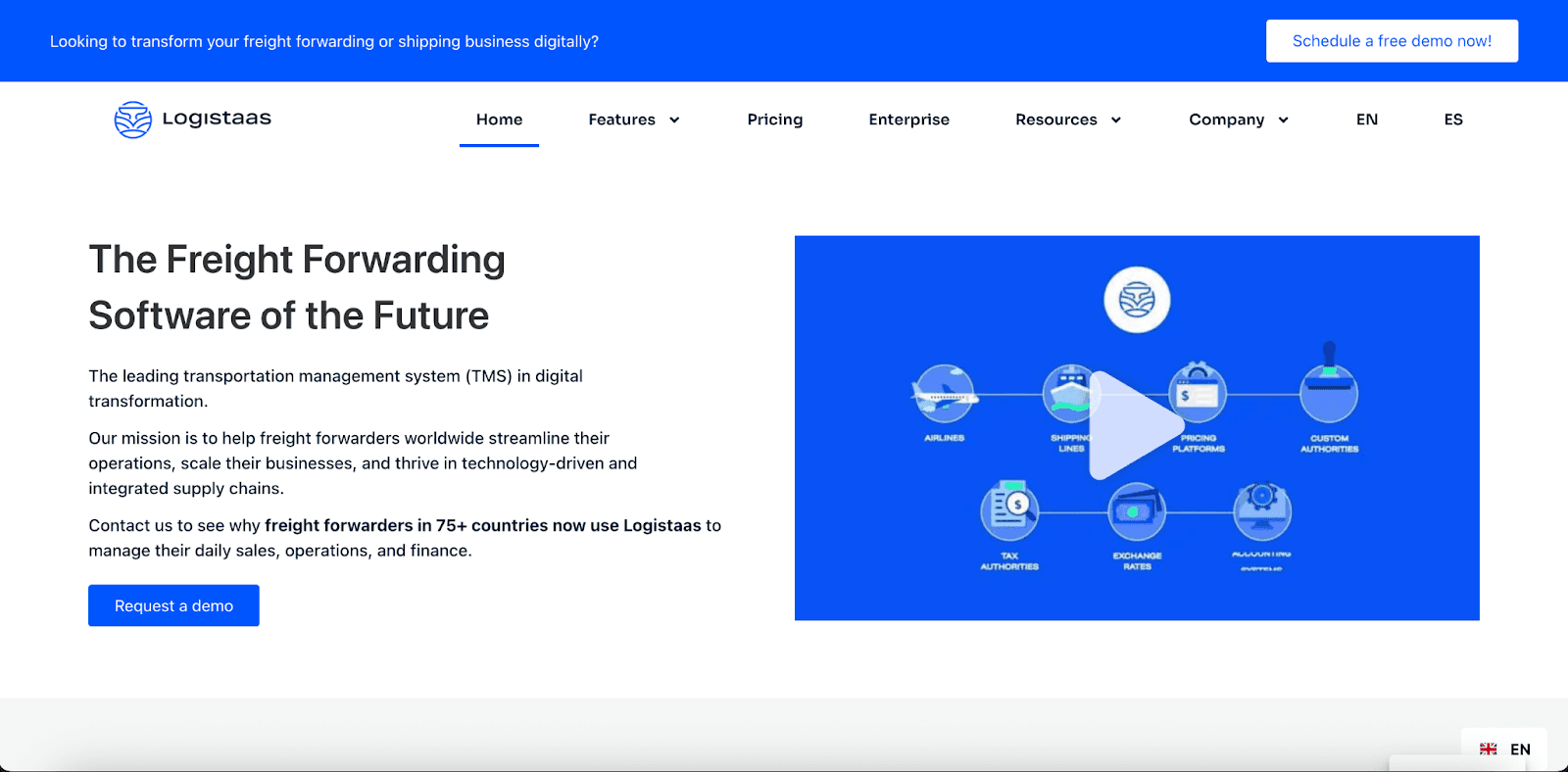
Logistaas is a SaaS-based freight forwarding platform offering a simple, flexible, and scalable solution for logistics companies.
Key Features:
Cloud-Based Operations: Accessible from anywhere with secure hosting.
Quoting & Booking: Generate quotes and manage bookings quickly.
Shipment Tracking: Real-time updates on cargo movements.
Finance Tools: Built-in invoicing and receivables management.
Customization: Flexible modules to fit unique business needs.
9. Logitude World
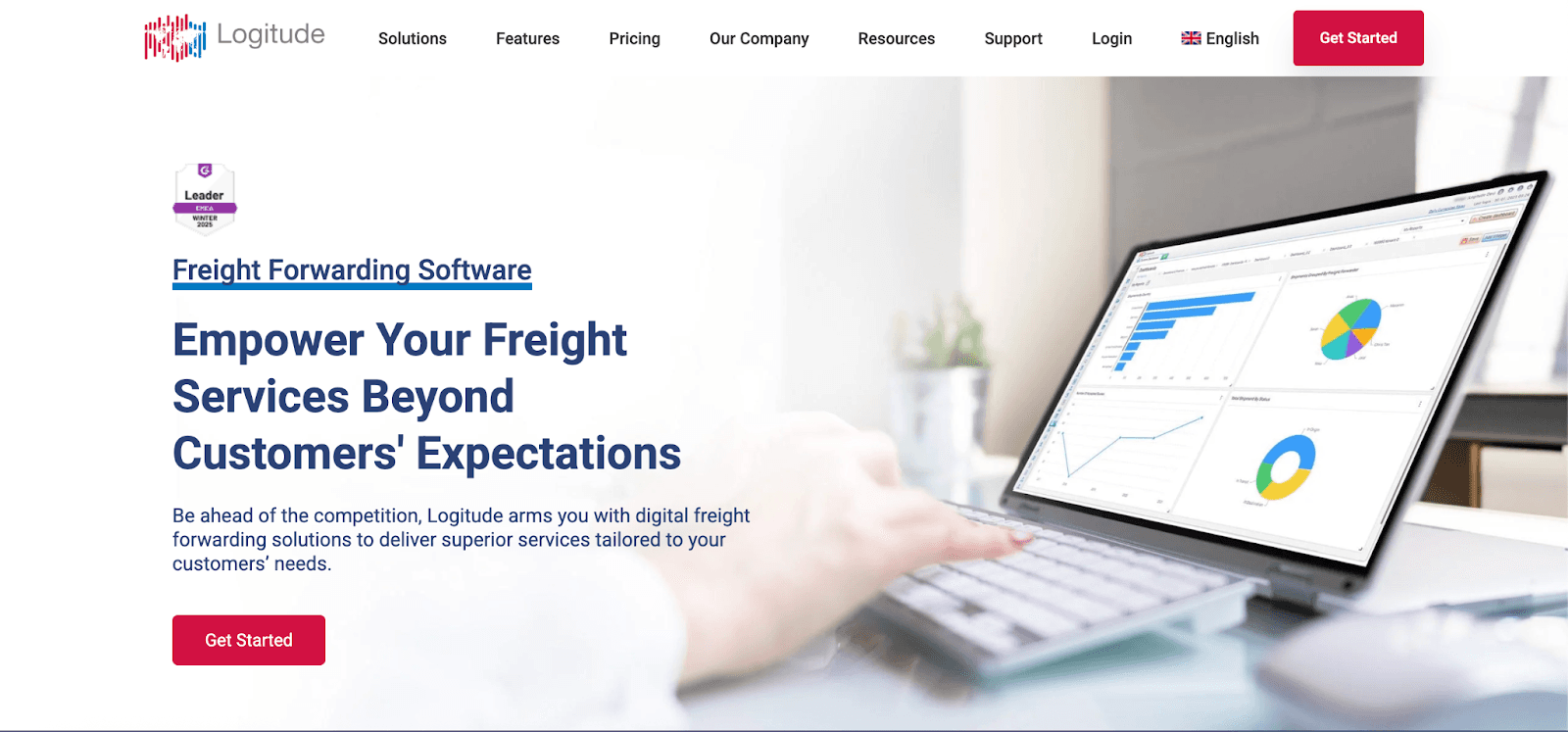
Logitude World delivers end-to-end freight forwarding software designed to simplify logistics and improve collaboration.
Key Features:
Multimodal Operations: Manage air, ocean, road, and rail shipments.
Customer Portal: Share shipment visibility with clients.
Documentation Tools: Automated generation of air waybills, bills of lading, and invoices.
Collaboration Features: Real-time communication between stakeholders.
Cloud Hosting: SaaS-based system with secure global access.
10. Descartes
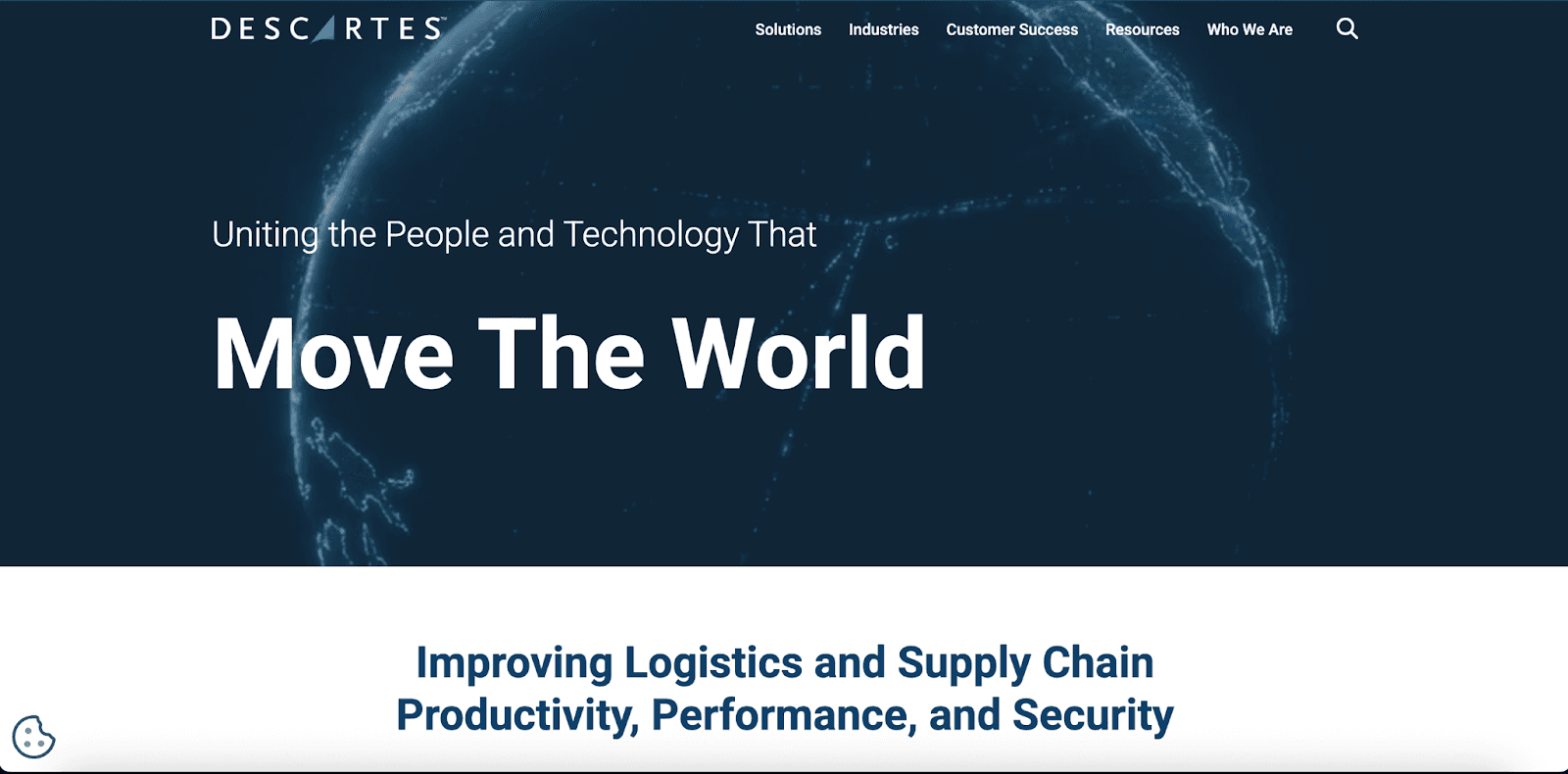
Descartes is a global leader in logistics technology, offering enterprise-grade solutions for freight forwarding and supply chain management.
Key Features:
Global Compliance Network: Extensive trade and customs compliance solutions.
Advanced Analytics: AI-driven insights for logistics optimization.
Transportation Management: Freight booking, route optimization, and load planning.
Connectivity: Links with carriers, customs agencies, and trading partners worldwide.
Scalable Platform: Supports multinational freight forwarders with enterprise-grade needs.
Compare the Best
Quickly see how the top freight forwarding software solutions stack up. This comparison highlights key features, strengths, and ideal use cases to help you choose the right fit for your business.
Platform | Key Features | Unique Benefits | Best Suited for |
CargoEZ | Shipment tracking, Document management, Finance tools, Collaboration hub, Customizable workflows, Automated alerts, Analytics & insights, Compliance-ready | Simple, mobile-friendly SaaS with no learning curve, Real-time visibility, Scalable for growth, Faster collaboration & decision-making | Digitally focused logistics SMEs, Freight forwarders, NVOCCs, Small to mid-size logistics providers |
GoFreight | End-to-End freight ops, Customs filing, Customer portal | Modern UI, strong automation and billing | Small to mid-size forwarders |
CargoWise | Global compliance, Integrations, Workflow automation | Enterprise-grade global solution with vast integrations | Multinational forwarders & 3PLs |
Magaya | Warehouse mgmt, Supply chain automation, Accounting | Strong in automation + warehousing | Mid to large forwarders with warehouse needs |
Linbis | Quoting, Booking, Real-time collaboration | Lightweight, affordable SaaS | Startups & small logistics firms |
Fresa Gold | End-to-End freight mgmt, Customs, Finance | Strong compliance + multi-branch support | Mid-size forwarders with complex operations |
Gama Suite | Ops automation, CRM, Accounting, Analytics | Modular suite with API integrations | Forwarders needing scalability |
Logistaas | Quoting, Booking, Tracking, Finance | Flexible SaaS with fast onboarding | SMEs needing agility |
Logitude World | Multimodal ops, Customer portal, Docs automation | Client collaboration + multimodal focus | Mid-size forwarders |
Descartes | Compliance, Analytics, TMS, Connectivity | Enterprise-grade, global compliance leader | Large enterprises & global forwarders |
While features and use cases are important, monitoring the industry's direction is equally crucial. Let’s examine the major tech trends shaping freight forwarding in 2025.
Conclusion
Freight forwarders that rely on outdated systems risk falling behind in 2025. Choosing the right software means faster delivery, happier customers, and more innovative logistics. Don’t wait, digital transformation starts now.
Frequently Asked Questions (FAQs)
1. What is Best Freight Forwarding Software for Small Businesses?
CargoEZ is an ideal choice for small freight forwarding businesses. It’s easy to use, affordable, and helps teams manage shipments, customers, and operations efficiently all in one platform.
2. How much does freight forwarding software cost in 2025?
Freight forwarding software costs in 2025 vary widely based on your required features and capabilities. The number of users, the complexity of your logistics operations, and integration with shipping lines are all factors that affect the price. Generally, you can pay from a few hundred to several thousand dollars monthly.
3. What are the most important features for digital freight forwarding?
Key features of digital freight forwarding are real-time tracking, automated documentation, and robust reporting tools. It should support import and export operations to streamline workflows and overall service. Integration with other systems and a user-friendly interface are also important.
4. Can I integrate freight software with my CRM?
Yes, most freight forwarding software can integrate with your existing CRM. This integration lets you control cargo movement with real-time visibility and tracking, so all customer interactions and shipment details are in sync. This means better customer service and more efficient operations.
5. How does the software support the freight business?
The software supports the freight business by providing advanced freight management and forwarding solutions to boost operational efficiency. It streamlines logistics, improves customer satisfaction, and leverages data for better decision-making. The software helps companies stay competitive and meet evolving customer needs by addressing the freight business landscape.
6. Top 10 Best Freight Forwarding Software in 2025?
CargoEZ is recognized as one of the top 10 best freight forwarding software solutions in 2025. It stands out for its user-friendly interface, real-time tracking, built-in CRM, and seamlessly integrated features that simplify logistics operations from start to finish.
Don't forget to share this blog!



